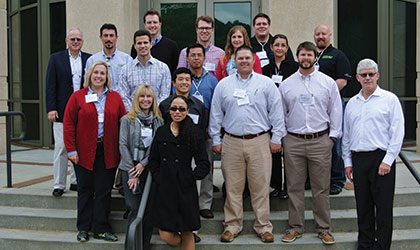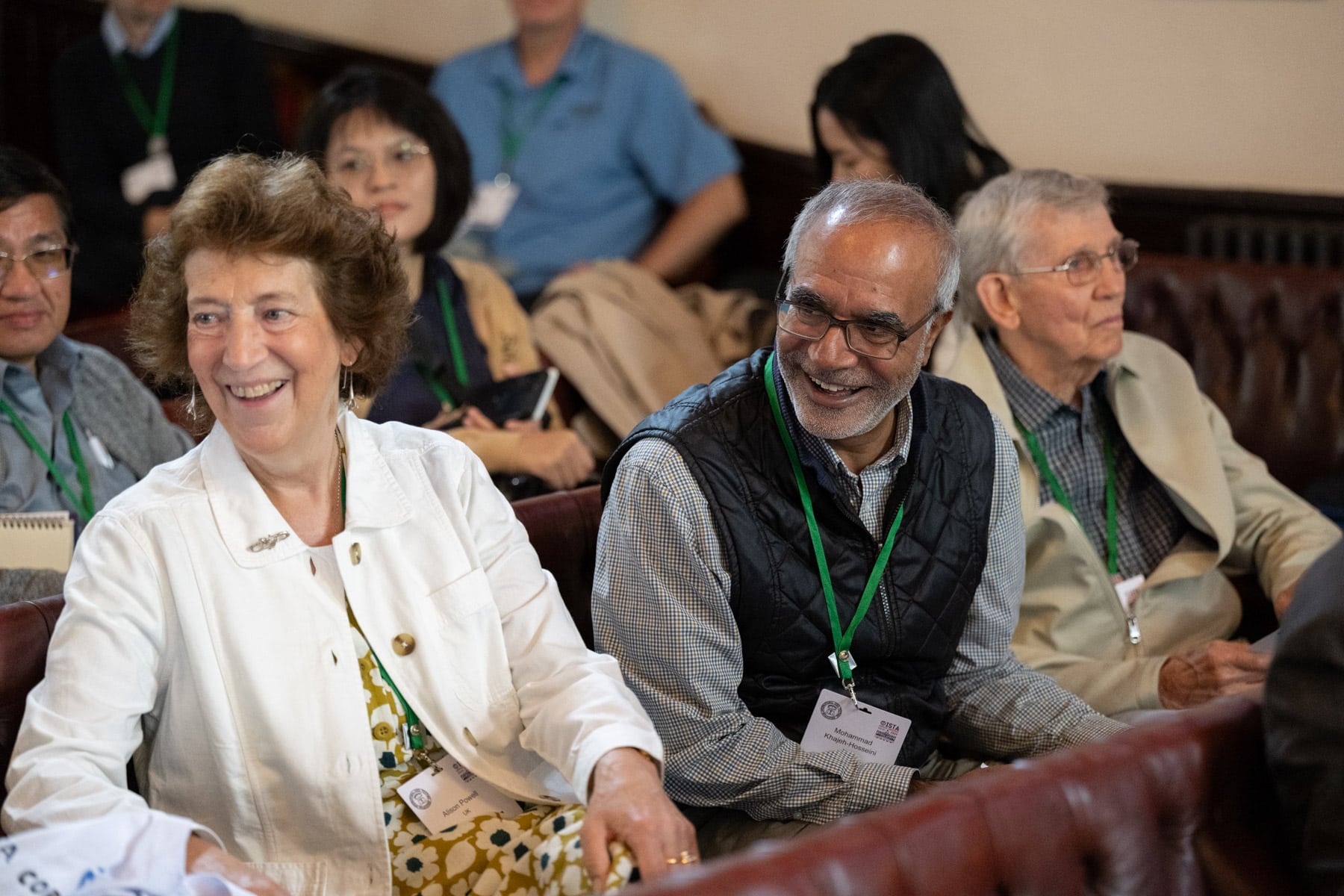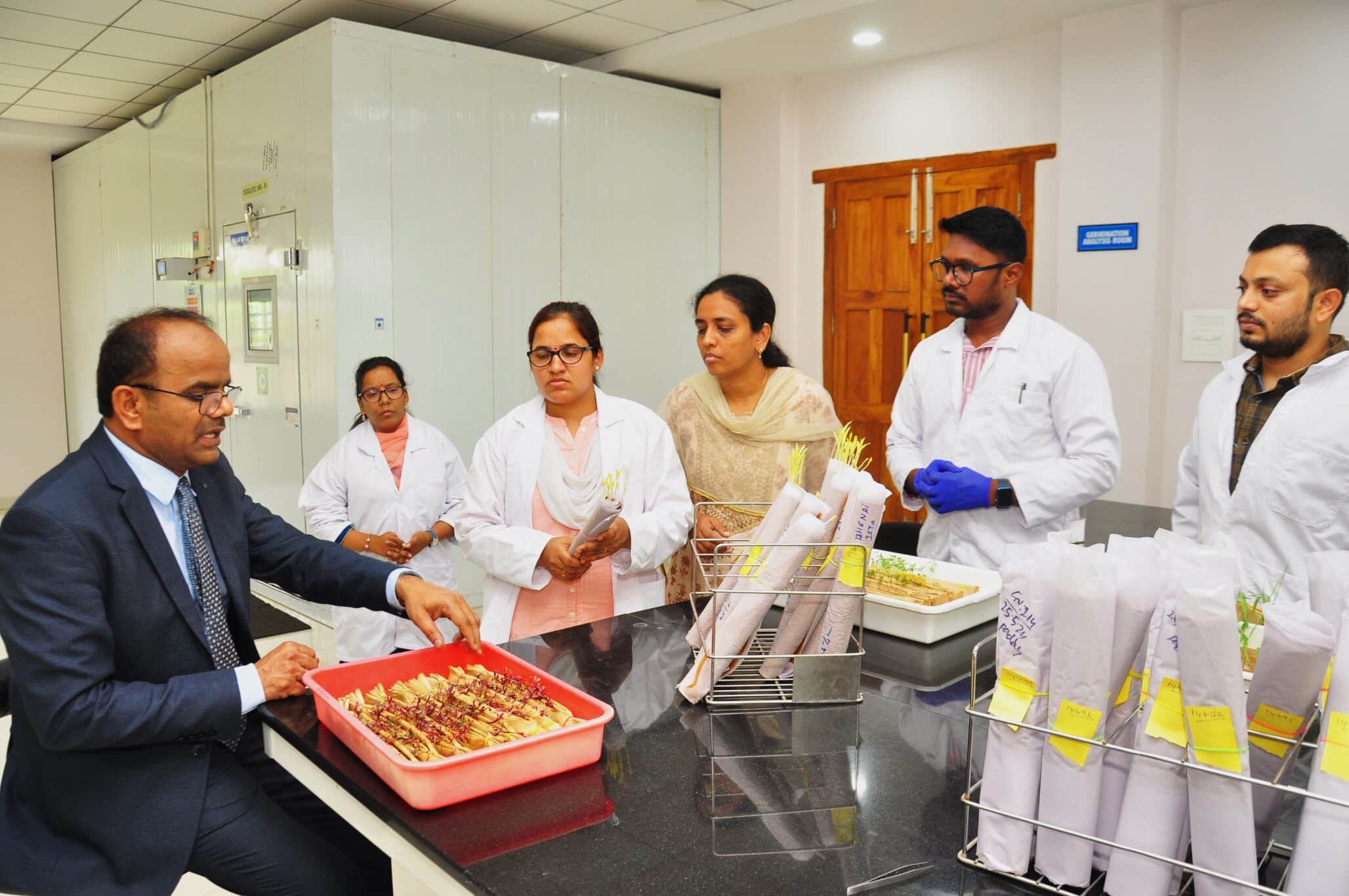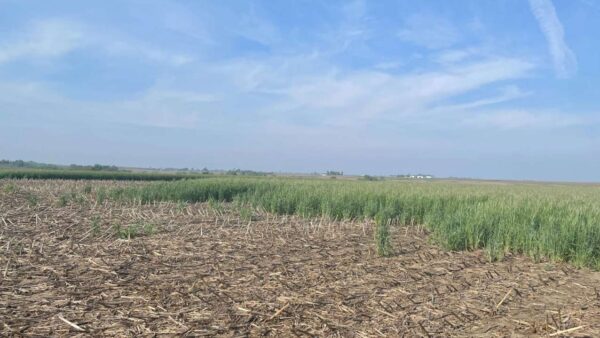FuSE educational unit participants in Raleigh, N.C., at host companies Cotton Inc. and Syngenta Biotechnology Inc. in October.
Future Seed Executives Broadens Scope
New direction and vision sets restructuring and rebranding in motion.
Since its inception in 2004, the American Seed Trade Association’s Future Seed Executives initiative has been sparking interest in and drawing young minds to the seed industry. At a time when competition to attract emerging talent is fierce, exposure of potential industry executives to the seed industry via FuSE initiatives has been an important additional benefit the committee provides the industry.
FuSE’s primary objectives—to offer a supportive and welcoming environment to individuals new to the seed industry, to provide networking and educational opportunities, and to cultivate management skills—remains unchanged. However, according to FuSE chair Cassie Misch, the past year saw many internal changes within FuSE.
“It’s been an exciting year for the committee,” says Misch. “In addition to launching a rebranding campaign, we put into action a plan to redefine the direction and vision of FuSE and to restructure our three main focuses—the Campus Connection program, educational units and roundtable discussion groups—into four new committees.”
The breakdown and function of the new committees are as follows:
• The Communications Committee ensures FuSE messaging remains consistent and cohesive.
• The Connections Committee encompasses the Campus Connections program, including new initiatives for networking.
• The Education Committee will focus on FuSE’s educational units and roundtable discussion groups.
• The New Developments Committee will spearhead all new ideas and channel these ventures to the appropriate committees.
Highlights of the 2012/2013 year included conducting educational unit development in cooperation with Incotec, Enza Zaden and UC Davis’ Seed Biotechnology Center’s Kent Bradford; hosting three roundtable discussions and webinars focused on social media in collaboration with the Independent Professional Seed Association; and awarding grants to six undergraduate students to attend the 130th ASTA Annual Convention in Nashville, Tenn.
An educational unit focused on agriculture in the southeastern region of the United States, particularly on the cotton value chain and Syngenta’s latest research projects on corn, soybeans, sugar cane, cereals, vegetables and sunflowers, kicked off this year’s programming at host companies Cotton Inc. and Syngenta Biotechnology Inc.
In January, FuSE will continue its collaboration with IPSA in the facilitation of a breakout session at IPSA’s 25th Annual Conference, which will focus on how to work with and market to young farmers.
In addition to another educational unit and roundtable discussion or two, Misch says FuSE is exploring the idea of developing online training tools. She hopes such tools could be of benefit to individuals new to the seed industry.
Misch is currently seeking out sponsorship for the 2013/2014 year—all programming is supported by company sponsorships. The importance of supporting newcomers to the industry is a message industry stakeholders are taking to heart as sponsorship has steadily increased over the years.
Everything considered, Misch is very pleased at last year’s successes and this year’s forthcoming programs.
“I think we did a really good job at continuing to put on our core programming, while at the same time, restructuring and opening ourselves up to new ideas that might work for us down the road,” she says. “This new direction and vision will allow FuSE to continue to guide seed industry newcomers down rewarding career paths.”
Kari Belanger













